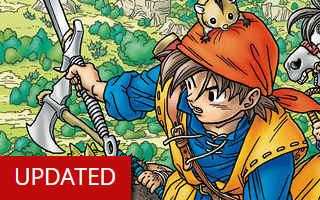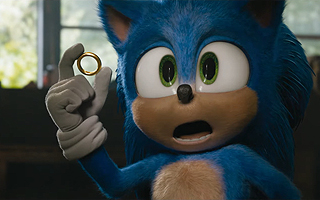Let's Get Physical
Top 10 Benefits of Physical Media!
For many gamers, digital distribution has overtaken physical media as the preferred way to play games. It’s easy to see why. You can buy digital games from the comfort of your own home, you don’t have to wait in line, and you rarely have to worry about online storefronts running out of inventory. Digital distribution can save you time and money, and you don’t even have to put on pants to buy a digital game! It’s convenient to have your library of games saved onto a hard drive or stored in the cloud, and you won’t need to set aside physical space in your home for your collection. While there are many upsides to digital distribution, there are also advantages to owning physical media. There’s nothing wrong with playing games the way you want to play them, but this list aims to highlight the benefits of buying physical games.
10
Physical Media Gives You the Benefits of Ownership

In 1989, Nintendo sued Blockbuster and argued that the rental giant was cutting into their sales. Nintendo hoped the newly proposed Computer Software Rentals Amendment Act would halt rentals of video games in the United States, but the House and Senate ultimately ruled in favor of Blockbuster. Japanese Copyright Law worked differently, however, as it allowed companies to implement their own terms regarding how their products could be used by rental stores. Unless they are backed by lawmakers, corporations like Nintendo cannot put restrictions on what people are permitted to do with products they buy. Legislative bodies are emboldened with the power to make laws, but video game publishers have no such authority. Many companies try to bind their games to unenforceable license agreements, but it’s important to realize that these “agreements” carry no legal weight in of themselves. This is especially true when you see garbage about “non-transferable software licenses.” If that “non-transferable” license is tied to a piece of physical media, then it’s most certainly transferable despite what the EULA says. That’s the reason why most people reading this are permitted to rent, lend, or sell their physical games to whomever they want. When you buy a physical copy of the game, you have all the benefits (and protections) of ownership as determined by your respective lawmakers.
9
There Are Helpful Communities for Game Collectors

As much as I enjoy playing video games, it can be almost as fun to collect them. It’s exciting to win an online auction for a hard-to-find game, and I’m always thrilled when I come across a rare game in the wild. Other people feel the same way that I do, and there are countless online communities where game collectors can show off their wares and make recommendations. If you buy games from a digital storefront, you’ll have the same basic experience as everyone else. Prices fluctuate from time to time, but the basic experience of buying digital games doesn’t exactly compel conversation. If you’re in the market for physical games, you’re guaranteed to have a unique experience. I seldom know what games I’ll find when I walk into a game store, and the element of surprise makes the entire experience more interesting. Every game in your collection could have its own story, and it’s interesting to share your experiences with other people in the community. If you live in a city with video game stores, you could potentially meet people with similar interests and actually interact with them in the real world. It’s easy to take that sort of thing for granted, but the importance of real human interaction in a post-COVID world cannot be overstated. On a related note, buying games from small businesses is a great way to support local economies. Mega corporations don’t need your money, but your friendly neighborhood game store could always use your support.
8
Physical Collections Can Fulfill Our Primitive Instincts

My digital library of games simply doesn’t provide me with the same dopamine rush that I get from my physical collection. Maybe it’s because I have a nostalgic response to old video games, but perhaps there’s something else going on. The “psychology of collecting” seeks to understand why people pour vast amounts of time, money, and energy into maintaining collections. While the specific motivating factors vary from one person to the next, humans have a propensity to collect things that begins at birth. Carl Jung hypothesized that our innate desire to collect stems from our old hunter-gatherer lifestyles. Others have suggested that collections help people fulfill a subconscious desire to extend their own presence in the world. There are various theories regarding why people feel the need to collect things, but it’s clear that maintaining a collection can create feelings of emotional security and physical comfort. Although hunting for video games is a trivial activity, the psychology of collecting suggests that we all have an built-in desire to gather resources.
7
Physical Games Can’t Be Rendered Useless

Michael Jordan famously called Muggsy Bogues a “fucking midget” during a 1995 playoff game. If MJ was held to the same standard that gamers are, he would have been banned from the NBA in the name of inclusivity. Most game publishers reserve the right to ban players for any number of reasons. If you cheat in an online game, for instance, you might be struck with the dreaded ban hammer. Companies obviously have to protect the integrity of their online spaces, but some of their rules are downright unreasonable. Rules regarding “offensive” language are especially troubling. I’m certainly not suggesting that people should be able to say whatever they want with impunity. At the same time, we’re living in an environment where dictionaries are literally changing the definitions of words for political reasons. The list of things that people are offended by will only continue to grow as time goes on, and words and phrases that are acceptable today could be deemed harmful in the future. The problem with this is that policies against harmful language are sometimes retroactive. Some companies have even started banning people for off-platform activity! If a blue-haired community manager is unable to tell the difference between trash talking and actual racism, then they could potentially prevent you from using a product that you’ve paid for! A person can be banned from online play regardless of whether they’re playing a digital game or a physical game, of course, but physical media still has value even if an online account is banned. If you get banned while playing a physical game, you could potentially create a new account or simply sell the game to someone else. A physical game will never lose its inherit value. If a digital purchase is tied to a specific account, however, a mentally unstable moderator could potentially render your games obsolete because you called someone a simp on Twitter ten years ago.
6
Physical Media Allows You to Preserve Games

In 2018, Rockstar announced that they would be removing a number of songs from Grand Theft Auto IV due to their ten-year licensing deal running out. This wasn’t the first time something like this happened. Vice City and San Andreas had both received similar patches in the past. Gamers have a couple of ways to deal with destructive updates. Depending on the platform you’re playing on, you can sometimes choose not to patch the games. Conversely, if you have a physical copy of a game, you can often play it with the original content still in place. Physical media can give you an opportunity to play games as they were originally intended. In some cases, physical media might be the only way to play a game. Alan Wake was removed from digital storefronts for 17 months due to music licensing issues, but audiences could still buy physical copies of the game during this time. In 2020, the original version of Dragon Quest XI was de-listed from Steam and PSN following the release of the game’s Definitive Edition. Although the new version was better in almost every regard, the original release had better graphics. If you didn’t buy the original version before it was removed from digital stores, physical media was the only legitimate way for you to play it. This example wasn’t as egregious as the Star Wars “special” editions, but it’s understandable why preservation is an important issue for a lot of people.
5
Physical Media Can Be Shared

When I was younger, I would frequently trade games with my friends. A single copy of a video game could eventually find its way to every kid in class. The ability to lend games to other people allows them to be enjoyed by everyone. This concept still holds true today, even though the industry has changed. As much as I hate to admit it, many games are released in an unfinished state. It’s not unusual for games to have massive day-one updates, and some titles are literally unplayable out of the box. In these cases, an argument can be made that a physical copy of the game is just a glorified download code. If the contents of the game aren’t included on the disc (or cartridge), then what’s the point of owning a physical copy in the first place? The difference is that a download code is intended to be used only once. After you redeem the code, your game is typically tied to a specific account or platform. If you have a physical copy of the game, however, it can potentially be used by any number of people and associated with any number of accounts. You can still transfer ownership of the game to someone else. The new owner would be required to download a massive update too, of course, but anyone with the disc (or cartridge) could play the game on their own system. Digital download codes are strictly “one and done” affairs, but physical games can be enjoyed by vast numbers of people.
4
Ownership of Physical Games Can’t Be Revoked

In 2009, many Amazon Kindle owners woke up to discover that their digital libraries had been ransacked. Incidentally, Amazon had been selling George Orwell’s 1984 on their storefront without obtaining the rights to the book. Their solution was to forcefully remove the novel from everyone’s accounts and simply refund their purchase. Customers were not notified ahead of time, and there was no way to opt out. Amazon CEO Jeff Bezos later described the solution as “stupid, thoughtless, and painfully out of line with our principles,” but the incident served as a powerful wakeup call about the volatile nature of digital goods. This sort of thing simply doesn’t happen with physical media. In 1989, a US District court ruled that Tengen could not legally sell their own version of Tetris on the Nintendo Entertainment System. The game was immediately pulled from store shelves and Tengen was ordered to destroy their inventory. Customers who had already purchased the game were permitted to keep it, of course. Nobody snuck into their houses in the middle of the night to steal their games. Your digital goods can be taken from you at any time without warning, so you better hope that there aren’t any licensing disputes surrounding your favorite games.
3
Digital Storefronts are Volatile

When Coleco withdrew from the video game market in 1985, they simply stopped making new video games. The existing ColecoVision games still functioned as they always did. Limitations can be placed on your digital library, however, and there’s no guarantee that you’ll be able to access your digital goods if a company throws in the towel. Take, for example, Google Play Music. After Google cancelled the service in 2020, its users were no longer able to access their libraries or download the music that they had paid for. This sort of scenario could happen with any online service. According to Phil Spencer, Microsoft nearly gave up on the Xbox brand in 2014. It’s not clear if customers would have been able to access their libraries after Microsoft made their exit from the industry, but digital store fronts don’t have a great track record in this regard. Don’t assume that your digital library is safe just because it has the backing of a trillion-dollar company. Giant corporations like Google, Apple, and Microsoft could fill a graveyard with their abandoned products, and they feel no obligation to keep their services active if they feel they’re no longer a worthwhile investment. There is no guarantee that your digital library will be around forever.
2
You Can Collect Games That Have Been Discontinued

Forza Horizon 3 was regarded as one of the greatest arcade racers of all time when it was released in 2016. In 2020, Microsoft pulled the game from their online store and arbitrarily claimed that it had reached it’s “end of life” state. You could still buy a physical copy of the game on the second-hand market and play it on your Xbox One, but this wasn’t an option on the PC since no physical version was ever released. A similar scenario happened with Transformers Devastation in 2017. Games are constantly being pulled from online stores, and sometimes the stores themselves disappear. In 2017, Nintendo announced that they would be closing down the Wii Shop Channel. The online storefront had been around since 2006 and featured hundreds of WiiWare titles that were exclusive to the platform. Sadly, gamers had no way to officially buy these games after the Wii Shop Channel closed. New generations of gamers will have no way to play the games in the future without resorting to piracy. Games like Contra Rebirth might never be re-released, and quirky titles like Fluidity will be lost forever. Physical games are sometimes released in extremely limited quantities, but the second-hand market ensures that you’ll always have the option of buying a game after its release. You might have to sell a kidney in order to afford them, mind you, but there’s still an avenue to purchase the games if you’re so inclined. Physical goods are limited by their very nature, but they can’t be arbitrarily discontinued in the same way that digital goods are.
1
Physical Games Retain Their Value

Your digital collection might be convenient, but it simply won’t hold its value in the same way that physical media does. Likewise, the money you spend on “Games as a Service” platforms like Xbox Game Pass can never be recovered. One of the best things about physical goods is that they retain their value over time. I’ve spent untold thousands of dollars on my game collection, but I know that I could recuperate the costs at any time. In fact, my collection is likely worth more than what I paid for it! Although I have no intention of selling my collection, I realize that life can throw me a curveball at any moment. What good is a digital collection if you lose your job? What’s your Steam library going to do for you if you need money to pay for an unexpected illness? The money you’ve spent on your Stadia subscription won’t help you if you need to pay for a new child. The amount of people who lost their livelihoods in 2020 due to government-imposed lockdowns is staggering, so I’m not arrogant enough to believe that I’ll never need money in the future. I have peace of mind knowing that my collection has a real-world value. Your mileage may vary depending on what types of games you enjoy, of course. If you’re the type of person who only plays FIFA and flavor-of-the-month AAA blockbusters, then you obviously won’t see a return. If you have good taste, however, your physical games can act as a veritable rainy day fund and a surprisingly effective hedge against inflation.





Do you agree with this list? Let us know what you think by leaving a comment below. Your opinion matters!